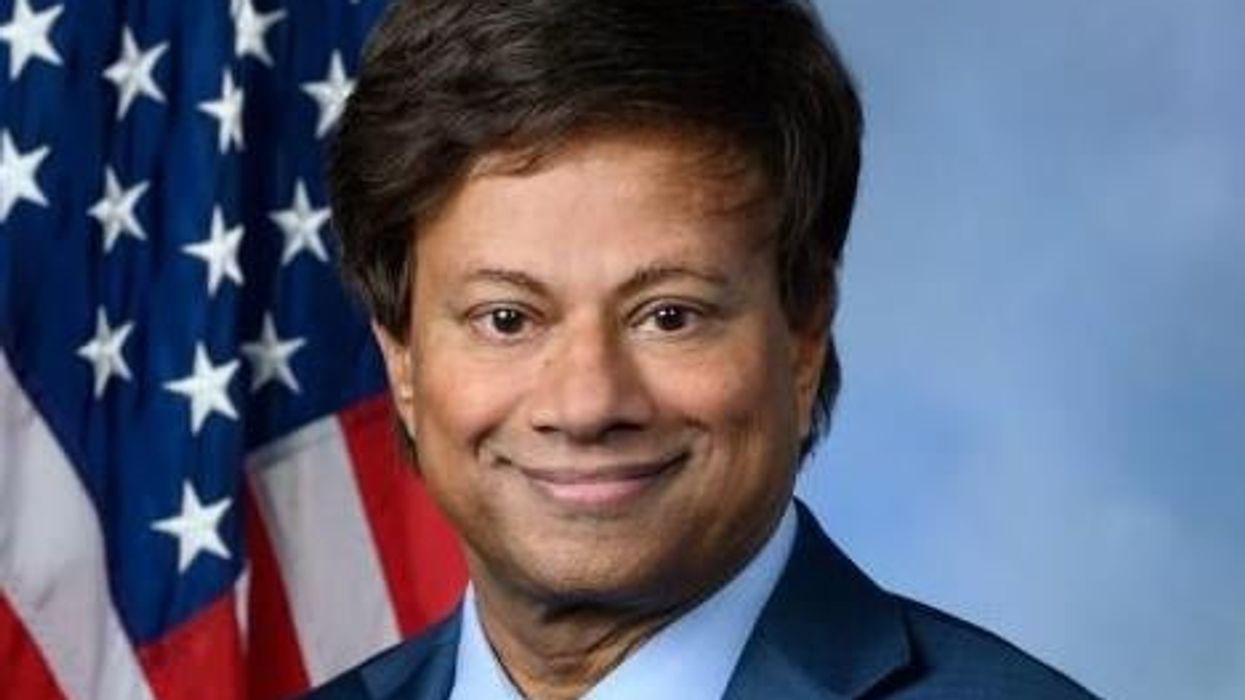The relationship between India and the US has not been as strong as it needs to be, Indian-American Congressman Shri Thanedar has said, vowing that he will work to strengthen economic ties that benefit both countries and help enhance cooperation between their people.
Thanedar, 67, represents the 13th Congressional District of Michigan, which mainly comprises parts of Detroit and its suburbs. He was sworn in as a member of the US House of Representatives early this month.
He became the fifth Indian-American to be in the current Congress, joining four others: Dr Ami Bera, Raja Krishnamoorthi, Ro Khanna and Pramila Jayapal.
“I think historically, this (India-US relationship) has not been as strong a relationship as it needs to be. We are the two biggest democracies. India has a huge economic power. India now has the leadership of G-20,” Thanedar told PTI.
His first month of in the House has been quite historic as he voted 15 times to elect the Speaker. This week, he was made members of the two influential House committees: Small Business and Homeland Security.
“India has been recognized for its economic power. The United States would benefit. I think, the United States and India each will benefit by having strong mutual relationships: a relationship of trust, a mutual economic relationship, … more trade, mutual trade,” he said.
“We have reached a high watermark now, with my election as the fifth Indian American …I want to use this opportunity to build strong India-United States relationships. I want to work very hard on that, and help commerce help the people of both countries be able to work together with a lot of trust, and a lot of cooperation,” Thanedar said.
Thanedar’s is a rags-to-riches story. He arrived in the US when he was 24-year-old primarily to escape poverty and financial hardship he and his family were facing.
Noting that he grew up in poverty in India, he said his home had no running water, often no electricity and the entire family of six brothers and sisters and parents lived together in one house.
“There were times we didn't know where our next meal is gonna come from. So, having grown up in poverty, having had the struggles that I have had, I understand the struggles of working families, I understand the tough choices that they need to make,” he said.
Indian-Americans have contributed tremendously to the growth and success of the United States and that is great, he said.
“We have some of the best doctors. We have some of the best business people, academicians… But we also have as an immigrant, as a naturalised United States citizen, responsibility beyond economic success, beyond achieving our American dream. We also have an obligation to give back,” he said.
A businessman-turned-politician, Thanedar said he wants to spend the rest of his life in the service of the people of the country.
As a lawmaker, he has said his priorities areas are education, poverty alleviation and health care. The constituency that he comes from has a large number of people living in poverty.
Ultimately, it is improving the quality of life. Covid-19 hit hard the city of Detroit, especially the black and brown communities, he said.
“What Covid did was show us that in a nation as rich as the US, we have poverty, my district has 25 per cent of people at or below the poverty level. We have this huge wealth gap,” he said, as he slammed the Republicans for giving tax breaks to the rich, which has not been helpful as well.
He said the lives of people at the bottom of the economic ladder have not changed for decades.
“We need to really approach it totally differently. We need to create opportunities at the bottom… that means trade education… We need to create a skill set so that people can get good-paying jobs. We need to start working on that, we need to create health insurance, we need to disconnect health insurance from employment,” he said.
Thanedar said regardless of one's employment status, one should have health coverage, and no one should be worried if a big healthcare crisis will make them bankrupt.
“No one has to worry, if they're going to pay for their insulin, or their prescription medicine, or they're going to pay for heat, or they're going to pay for food, we should not be making those kinds of choices. Our residents should not have to make those conduct choices in a nation which is the world's richest nation,” he said.
“It just shows something where we have to pay more attention, we need to look at this differently. Not the top-down economics but more of lifting the bottom up and creating opportunities. Opportunities like entrepreneurship,” he said.
“So we need to work on economic issues, first and foremost. Then we can talk about other issues that are just as important, like voting rights. We need to ensure that everyone has the freedom and ability to vote,” Thanedar said.
(PTI)





